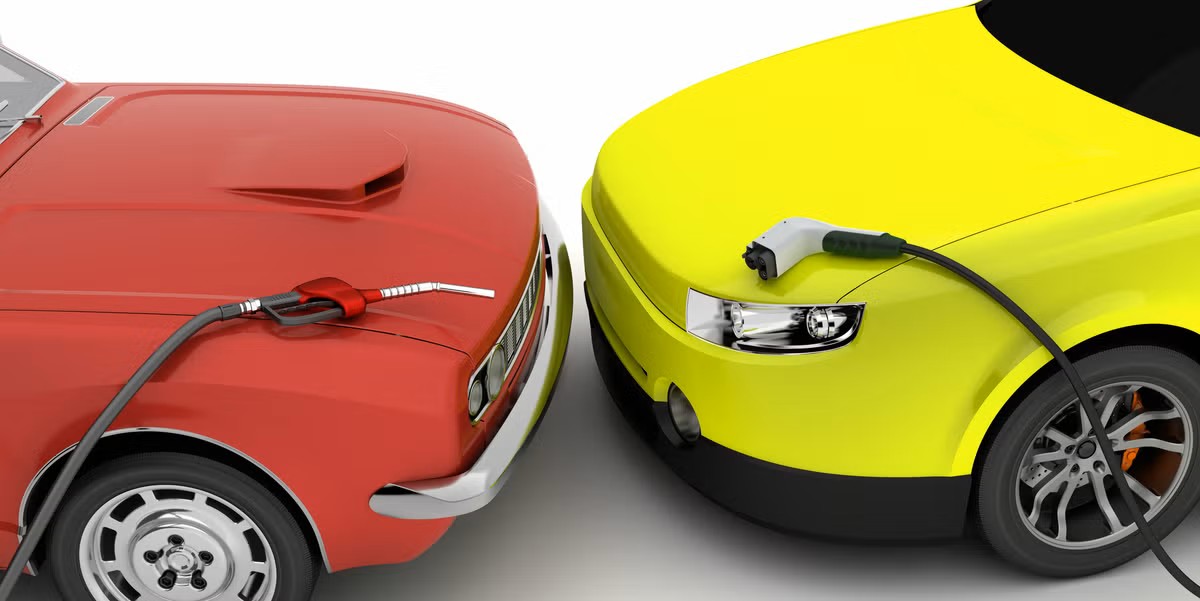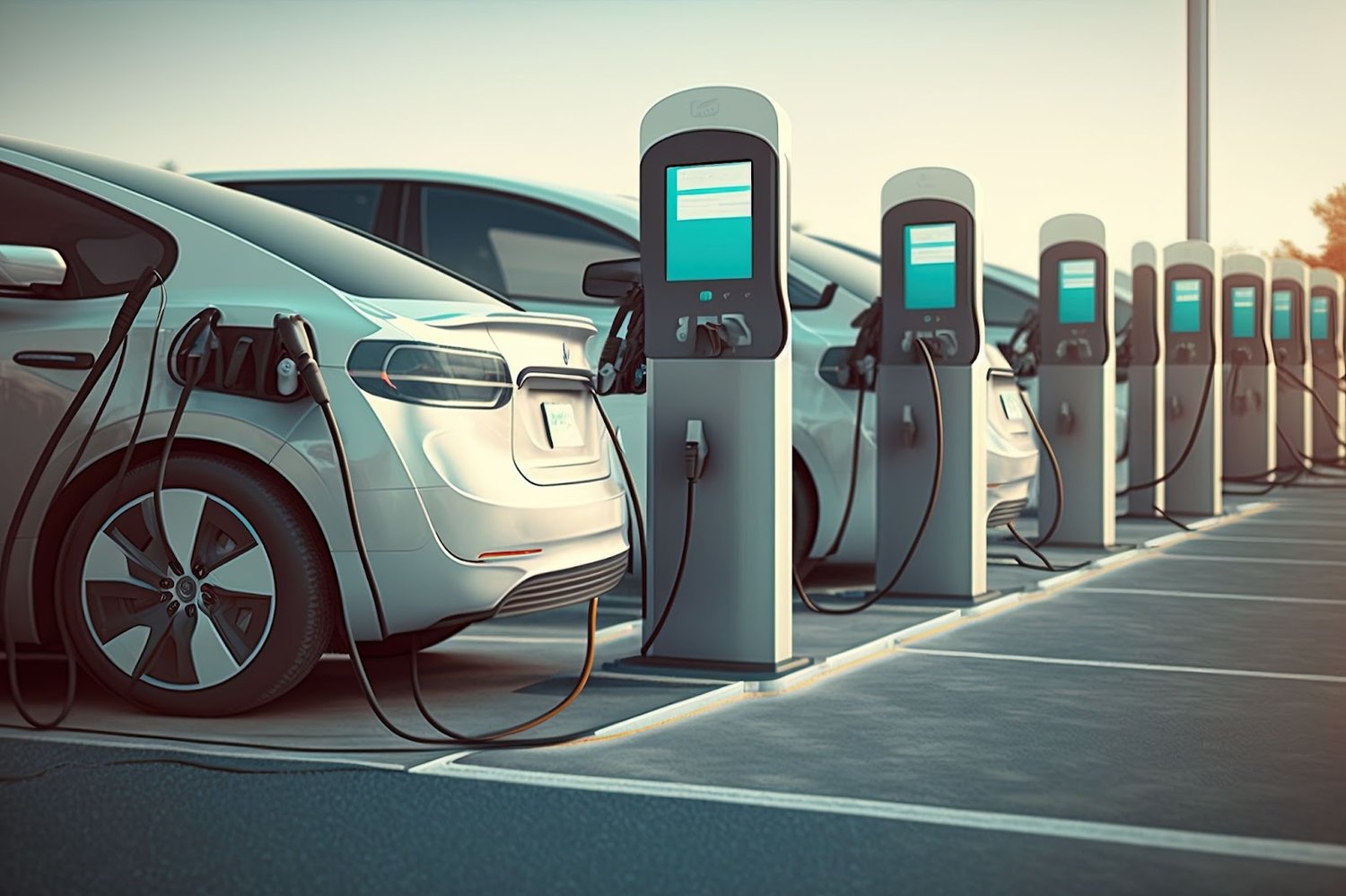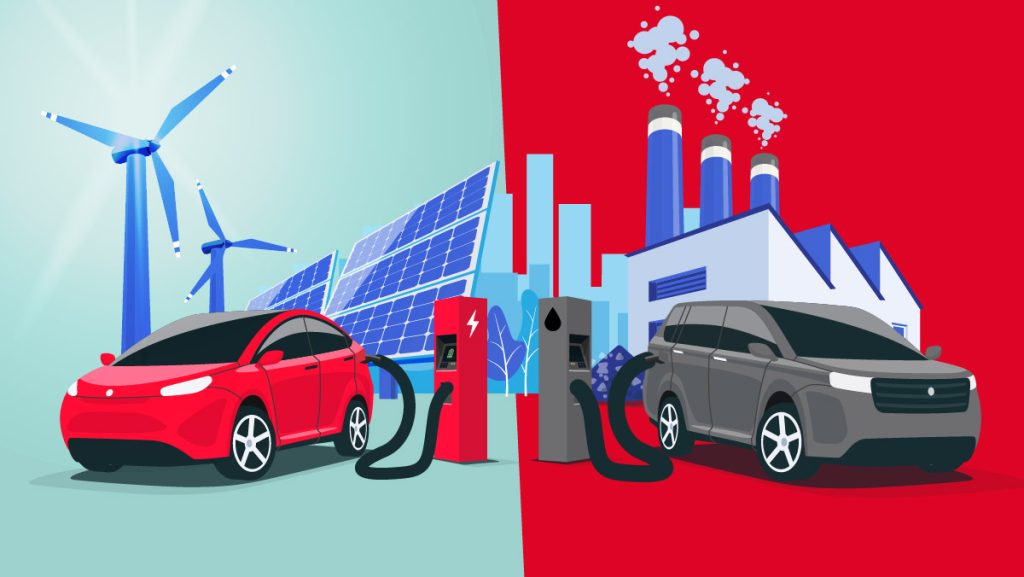The automotive industry is undergoing a significant transformation as electric vehicles (EVs) gain prominence. Governments and manufacturers worldwide are pushing for the adoption of EVs as a solution to reduce greenhouse gas emissions, combat climate change, and promote sustainable transportation. Incentives such as tax breaks, rebates, and stricter emissions regulations are being implemented to encourage consumers to make the switch from traditional gasoline-powered cars to electric alternatives.
However, this push towards EV adoption has sparked a debate about whether it is being forced on consumers. Critics argue that the rapid transition to electric vehicles may not align with everyone’s needs and preferences.

Concerns about the availability of charging infrastructure, the higher upfront costs of EVs, and the perceived limitations in driving range and performance are some of the barriers that consumers face. Additionally, there are questions about whether the current pace of adoption is sustainable and whether it might lead to unintended consequences for the automotive industry and the economy.
In this article, we will explore both sides of the debate. First, we will examine the benefits and necessity of promoting EV adoption, considering the environmental and technological advantages. Then, we will discuss the challenges and concerns that arise from the perspective that EV adoption might be imposed on consumers. Through this balanced analysis, we aim to provide a comprehensive understanding of the complexities surrounding the transition to electric vehicles.
The Case for Promoting EV Adoption
Promoting the adoption of electric vehicles (EVs) is crucial for various compelling reasons, primarily centered around environmental sustainability, energy independence, and technological advancements. One of the most significant advantages of EVs is their potential to reduce greenhouse gas emissions, which is vital in combating climate change. Traditional gasoline-powered vehicles emit a substantial amount of carbon dioxide and other pollutants, contributing to global warming and air pollution. EVs, on the other hand, produce zero tailpipe emissions, which means they do not release harmful pollutants into the atmosphere. This reduction in emissions is particularly beneficial in urban areas, where air quality often suffers due to high traffic density.
Another reason for promoting EV adoption is the shift towards renewable energy sources. As the electricity grid becomes greener with the increased use of solar, wind, and hydroelectric power, the environmental benefits of EVs will continue to grow. Charging EVs with renewable energy further reduces their carbon footprint, making them a cornerstone of a sustainable energy future. This transition is essential for reducing dependence on fossil fuels and moving towards a more resilient and sustainable energy system.
Technological advancements in EVs have made them more appealing to consumers. Modern EVs offer improved performance, longer driving ranges, and faster charging times compared to earlier models. Innovations in battery technology have led to increased energy density and reduced costs, making EVs more accessible to a broader audience. Additionally, EVs are known for their quiet operation and lower maintenance requirements, which contribute to a better driving experience and long-term cost savings for consumers.

Government incentives and policies play a critical role in promoting EV adoption. Many countries offer tax credits, rebates, and subsidies to reduce the upfront costs of purchasing an EV. These financial incentives make EVs more competitive with gasoline-powered cars and encourage consumers to make the switch. Furthermore, stricter emissions regulations and the implementation of low-emission zones in cities create an environment where EVs are not only desirable but necessary for compliance.
The expansion of charging infrastructure is another critical factor in promoting EV adoption. Governments and private companies are investing heavily in developing extensive charging networks to address concerns about range anxiety and charging convenience. With more charging stations available, consumers can confidently choose EVs without worrying about the availability of charging options during their journeys.
Promoting the adoption of electric vehicles is vital for environmental sustainability, energy independence, and technological progress. The benefits of reduced emissions, advancements in EV technology, government incentives, and the development of charging infrastructure all contribute to making EVs an attractive and necessary choice for a cleaner and greener future.
Concerns About Forced EV Adoption
While the promotion of electric vehicle (EV) adoption is driven by important environmental and technological goals, it has raised several concerns among consumers and industry experts. One of the primary issues is the perception that EV adoption is being forced on consumers without adequately addressing their needs and preferences. Critics argue that the rapid transition to EVs may not be suitable for everyone, and there are several barriers that need to be considered.
One of the most significant barriers is the availability and convenience of charging infrastructure. Although investments are being made to expand charging networks, the current infrastructure may not be sufficient to meet the needs of all EV owners, particularly in rural and underserved areas. Range anxiety, or the fear of running out of battery power without access to a charging station, remains a major concern for potential EV buyers. The convenience and ubiquity of gasoline stations make gasoline-powered cars a more reliable option for many consumers.
The higher upfront costs of EVs compared to traditional gasoline-powered cars also pose a challenge. While government incentives and subsidies help to offset some of these costs, they may not be enough to make EVs affordable for all consumers. Additionally, concerns about the long-term durability and replacement costs of EV batteries can deter potential buyers. The resale value of EVs is also a consideration, as the market for used EVs is still developing.
There are also concerns about the environmental impact of EV production, particularly the extraction and processing of materials used in batteries, such as lithium, cobalt, and nickel. The mining and refining processes for these materials can have significant environmental and social consequences. Critics argue that the environmental benefits of EVs must be weighed against the impacts of their production and lifecycle.

From an economic perspective, the transition to EVs could have unintended consequences for the automotive industry and the economy. The shift may lead to job losses in sectors related to the production and maintenance of internal combustion engine vehicles. Additionally, the demand for gasoline and oil could decrease, impacting industries and economies that rely heavily on fossil fuel production and distribution.
Moreover, some consumers feel that the pace of EV adoption is being dictated by government policies rather than market demand. This perception of top-down enforcement can create resistance and skepticism among consumers who prefer to make their own choices based on their individual needs and circumstances.
While the promotion of electric vehicles is driven by important environmental and technological goals, it is essential to address the concerns and barriers that consumers face. Ensuring a smooth and equitable transition to EVs requires a comprehensive approach that considers infrastructure development, affordability, environmental impact, and consumer preferences. Balancing the push for EV adoption with the need to respect consumer choice will be crucial for the successful integration of electric vehicles into the mainstream market.

